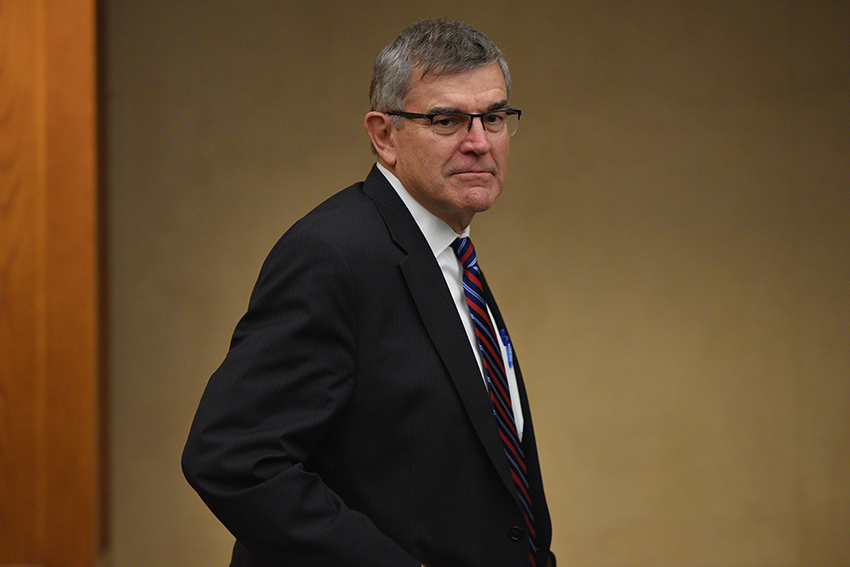The House Higher Education Committee met for the first time this session on Wednesday, to discuss the state of higher education and Title IX regulations.
Higher Education Commissioner Raymund Paredes said Legislature funding for higher education hasn’t kept up with increased tuition and fees across the state.
“State support and state appropriations for higher education has declined significantly, but they haven’t declined as fast as the cost of tuition and fees has gone up,” Paredes said.
Net tuition and fees in Texas have increased 90 percent since 2003, while state funding has decreased 26 percent, Paredes said.
“There’s a significant gap there,” Paredes said. “We can’t say tuition and fees (are) going up entirely due to the decline of state support. That’s simply not true.”
The variation in tuition and fees between institutions is partly due to the affluence of the area a given university is located in, Paredes said.
“Universities and community colleges are very sensitive to their markets,” Paredes said. “The places where tuition and fees tend to be lowest are in the least affluent parts of the state … because the institutions understand that their students can’t afford to pay what students at other institutions can.”
But Paredes said a Texas education is still a bargain compared to other states.
“If you compare quality versus cost, you’ll see that institutions like UT-Austin and Texas A&M regularly appear on lists of best bargains in higher
education,” Paredes said. “Our community colleges are the third least expensive in the country.”
The committee also heard testimony on Secretary of Education Betsy DeVos’ proposed changes to the regulations of Title IX, the law that prohibits federally funded institutions from discriminating on the basis of sex. The regulations were released in late November and subject to a 60 day public comment period, which was extended for two days in January and will reopen for one day Feb. 15 due to technical issues preventing submission of comments.
“We’ve always had sexual harassment policies, but in recent years, there’s been some more guidance under the Obama era,” said Daniel Sharphorn, vice chancellor and general counsel to the UT System. “Now the Department of Education wants to change the guidance to a set of regulations, and those regulations have a number of things that we do find concerning.”
Sharphorn said the Department of Education has received more than 104,000 comments on the proposed regulations. The UT System submitted a 15-page comment which included critiques on the proposed regulations’ narrower definition of sexual harassment and the requirement of cross-examination of the complainant and accused.
“It’s unclear at this time what changes will be made to the proposed regulations and how quickly they will move,” said Ray Bonilla, chief legal officer to the Texas A&M University System.
Heather Hadlock, Title IX coordinator at East Texas Baptist University, said the proposed regulations are attempting to create a more court-like atmosphere for Title IX investigations. But many Title IX complaints deal with muddy waters of whether consent was given — something Hadlock said is not easily determined in a court-like setting.
“We want the ability to take care of our students in the way that we want to take care of them,” Sharphorn said.




















